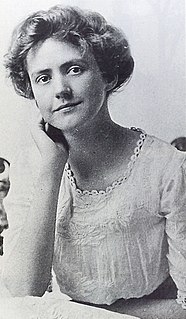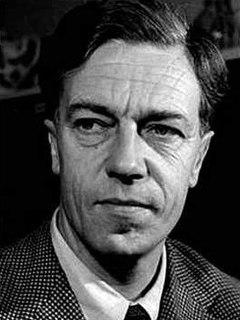A Quote by George Edward Woodberry
From the beginning, about the rude altar of the god, to the days of Goethe, of Leopardi, and of Victor Hugo, the poet is the leader in the dance of life; and the phrase by which we name his singularity, the poetic temperament, denotes the primacy of that passion in his blood with which the frame of other men is less richly charged.
Related Quotes
Man with all his noble qualities, with sympathy which feels for the most debased, with benevolence which extends not only to other men but to the humblest living creature, with his god-like intellect which has penetrated into the movements and constitution of the solar system- with all these exalted powers- Man still bears in his bodily frame the indelible stamp of his lowly origin.
The great passion in a man's life may not be for women or men or wealth or toys or fame, or even for his children, but for his masculinity, and at any point in his life he may be tempted to throw over the things for which he regularly lays down his life for the sake of that masculinity. He may keep this passion secret from women, and he may even deny it to himself, but the other boys know it about themselves and the wiser ones know it about the rest of us as well.
What becomes decisive to a Justice's functioning on the Court in the large area within which his individuality moves is his general attitude toward law, the habits of the mind that he has formed or is capable of unforming, his capacity for detachment, his temperament or training for putting his passion behind his judgment instead of in front of it. The attitudes and qualities which I am groping to characterize are ingredients of what compendiously might be called dominating humility.
A foundation in Christ was and is always to be a protection in days "when the devil shall send forth his mighty winds, yea, his shafts in the whirlwind, yea, when all his hail and his mighty storm shall beat upon you." In such days as we are now in--and will more or less always be in--the storms of life "shall have no power over you... because of the rock upon which ye are built, which is a sure foundation, a foundation whereon if men build they cannot fall." (Helaman 5:12)
The pitch to which he was aroused was tremendous. All the fighting blood of his breed was up in him and surging through him. This was living., though he did not know it. He was realizing his own meaning in the world; he was doing that for which he was made.... He was justifying his existence, than which life can do no greater; for life achieves its summit when it does to the uttermost that which it was equipped to do.
We do not admire, we hardly excuse, the fanatic who wrecks this world for love of the other. But what are we to say of the fanatic who wrecks this world out of hatred of the other? He sacrifices the very existence of humanity to the non-existence of God. He offers his victims not to the altar, but merely to assert the idleness of the altar and the emptiness of the throne. He is ready to ruin even that primary ethic by which all things live, for his strange and eternal vengeance upon some one who never lived at all.
Only a law-order which holds to the primacy of God's law can bring forth true freedom, freedom for justice, truth, and godly life. Freedom as an absolute is simply an assertion of man's "right" to be his own god; this means a radical denial of God's law-order. "Freedom" thus is another name for the claim by man to divinity and autonomy. It means that man becomes his own absolute.
[St. Francis] looked upon creation with the eyes of one who could recognize in it the marvelous work of the hand of God. His solicitous care, not only towards men, but also towards animals is a faithful echo of the love with which God in the beginning pronounced his 'fiat' which brought them into existence. We too are called to a similar attitude.
Giving primacy to God means having the courage to say ‘no’ to evil, ‘no’ to violence, ‘no’ to oppression, to live a life in service of others and which fosters lawfulness and the common good. When a person discovers God, the true treasure, he abandons a selfish lifestyle and seeks to share with others the charity which comes from God. He who becomes a friend of God, loves his brothers and sisters, commits himself to safeguarding their life and their health, and also to respecting the environment and nature.
It is unwise to equate scientific activity with what we call reason, poetic activity with what we call imagination. Without the imaginative leap from facts to generalisation, no theoretic discovery in science is made. The poet, on the other hand, must not imagine but reason--that is to say, he must exercise a great deal of consciously directed thought in the selection and rejection of his data: there is a technical logic, a poetic reasoning in his choice of the words, rhythms and images by which a poem's coherence is achieved.
At first, man was enslaved by the gods. But he broke their chains. Then he was enslaved by the kings. But he broke their chains. He was enslaved by his birth, by his kin, by his race. But he broke their chains. He declared to all his brothers that a man has rights which neither god nor king nor other men can take away from him, no matter what their number, for his is the right of man, and there is no right on earth above this right. And he stood on the threshold of freedom for which the blood of the centuries behind him had been spilled.




































